Now Time & the Coming Community
Time has always been the slipperiest dimension of reality, even as it is the precisely felt fact, proved second by second along the pulse & breath, that disappears just when someone asks: what is time–––? But that evanescence, and the ongoing-ness of the stream of consciousness which loses itself within itself has become all the more deranged by the pandemic, which is to say plague-time; and further, future and past derangements persist or blink out amid all the screen-time only to return in the harder forms of Nation Time, wartime, and the long century of it all—
Yet counter-measures, too, remain for the time being, and how might we find and flow within those rhythms; how can we write through archival time to transform the image, or the sentence, or the multimedia composition; what scales of living and imagining can we find within dailyness; how can the many ways translation highlights time as part of the materiality of language give insight into the present; what is possible with the refractions of consciousness psychedelic time; how can we set writing to dream-time––these and more and other questions will occupy out time together.
To say that writing is a contemplative practice is in part to say writing is a technology for presence; and our experience of pure presence is only a glimpse of the radical rupture into history that the concept of now time proposes; ritual, and performance are practices and way bring the body and mind back together, and how might we extend that synchrony beyond the lone animal body to a collection of us in coalition into the (coming) community timed to the utopian possibility of “a science for each unique being.”
Workshop Faculty for Week 2
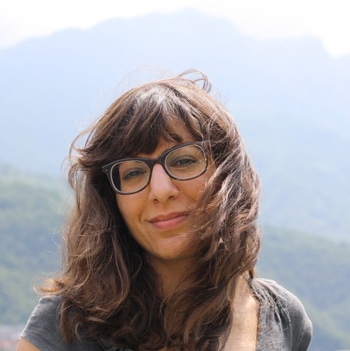
Telepathy Machines / Writing with Archival Time :: Carolina Ebeid
VHS tapes, recipes, birth and immunization records, letters, heirlooms, passports, a shoebox of photographs — these are among the tangible artifacts that make up the family archive. Amid the tangible, we recognize the intangible and ephemeral matter, such as oral histories, songs, missing records, objects lost in migration now only memory. How do we open a creative space for these often undervalued inventories? How can this telepathy help us write in the light of post-memory.
In this hybrid workshop, we will consider this question by engaging the work of writers and multimedia artists and poets such as Mary-Kim Arnold and Dianna Khoi Nguyen (and others); we’ll begin experimenting with the familial materials that we’ve gathered, exploring how to bring these documents & objects into our writing; we’ll write into that empty gaps of what’s absent from the archive. Together we will spend part of the time with reading, viewing, and (deep) listening to/of selected examples. And we’ll write responding the objects (and their afterlives) and as well as writing to generative writing prompts, and sharing what we create. Please have at least two artifacts with you (photo, object, document, etc) as you will think and write alongside them.
Carolina Ebeid is a multimedia poet. Her first book You Ask Me to Talk About the Interior was published by Noemi Press as part of the Akrilica Series, and selected as one of ten best debuts of 2016 by Poets & Writers. Her work has been supported by the Stadler Center for Poetry at Bucknell University, Bread Loaf, CantoMundo, the NEA, as well as a residency fellowship from the Lannan Foundation. She is on faculty at the Mile-High MFA at Regis University, the bilingual MFA at the University of Texas El Paso, and Lighthouse Writer’s Workshop in Denver. A longtime editor, she currently edits poetry at The Rumpus, as well as the multimedia zine Visible Binary. Carolina grew up in West New York, New Jersey in a Cuban and Palestinian family.
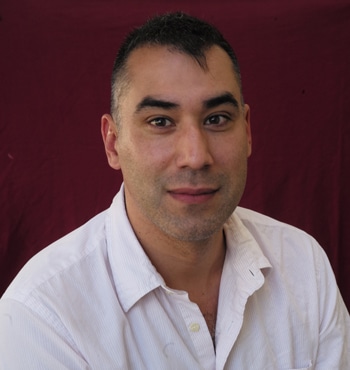
Breaking Up Time and Space: The Writer's Notebook as Gateway :: Cedar Sigo
In this workshop we will investigate various ways of capturing and recording details of the everyday. We will each keep our own notebooks and lean on chronology as a common formal ground while sometimes disrupting it. There will be in class reading of Etel Adnan, Larry Eigner, Wanda Coleman, John Wieners, Harmony Holiday, Margaret Randall, Rene Char, and others. We will write in class as well, tackling questions of tone and inflection, rehearsal versus practice. We may attempt to (temporarily) dislocate the overly familiar ‘I’. Hopefully our experiments will lead to further questions…How can we unlock and fragment orchestral space within the act of writing? So, the luminous idea for a story or poem might lie next to a piece of dream damaged dialogue or a list of household chores. Does the mere act of dating a piece (in advance) color its received content? I hope we will be able to uncover new edges within each of our voices and to come away with a document that is faithful to these unrelenting, all invading times.
Cedar Sigo is a poet and member of the Suquamish Tribe. He studied writing and poetics at Naropa University. His most recent books are (poetry) All This Time and (lectures) Guard the Mysteries both published by Wave Books in 2021. He received a Foundation for Contemporary Arts Grants to Artist’s Award in 2022. He is the editor of There You Are: Interviews, Journals & Ephemera by Joanne Kyger. He was an advisory editor with Joy Harjo on When the Light of the World was Subdued Our Songs Came Through: A Norton Anthology of Native Nations Poetry. He teaches in the Low-Residency MFA program at The Institute of American Indian Arts in Santa Fe.
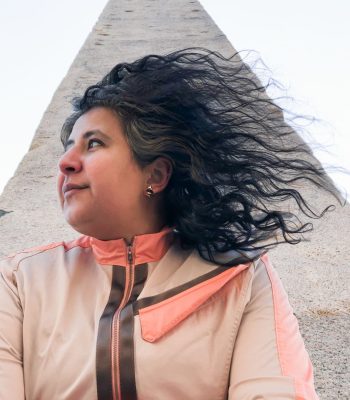
The End Is The Beginning :: Marwa Helal
The End is the Beginning
Abolitionist scholar Ruth Wilson Gilmore says, “To think about the edges of our struggle not as limits but as the beginning of the next struggle as well. That an edge is also an interface. So if we want to think after borders then we have to live as though borders can go.” We will push ourselves beyond our preconceived limits; our endings will become our beginnings, making room for new potentials in our poetics, including self-contained and elliptical forms. Erasure, omission, interruption and disruption will be part of our experimental practice.
Marwa Helal is a poet and journalist. She is the author of Ante body (Nightboat Books, 2022), Invasive species (Nightboat Books, 2019), the chapbook I AM MADE TO LEAVE I AM MADE TO RETURN (No Dear, 2017) and a Belladonna chaplet (2021). Helal is the winner of BOMB Magazine’s Biennial 2016 Poetry Contest and has been awarded fellowships from the Whiting Foundation, New York Foundation of the Arts, Jerome Foundation, Poets House, Brooklyn Poets, and Cave Canem, among others. She has presented her work at the Museum of Modern Art (MoMA), the Studio Museum in Harlem and Brooklyn Museum.
Her work is published in the following anthologies: Bettering American Poetry 2016, Best American Experimental Writing 2018, Brooklyn Poets Anthology, Halal If You Hear Me, and BreakBeat Poets: Black Girl Magic. She has served as editor of The Poetry Project’s Newsletter and is on the advisory board of The Offing.
Born in Al Mansurah, Egypt, Helal currently lives and teaches in Brooklyn, New York. She received her MFA in creative nonfiction from The New School and her BA in journalism and international studies from Ohio Wesleyan University.
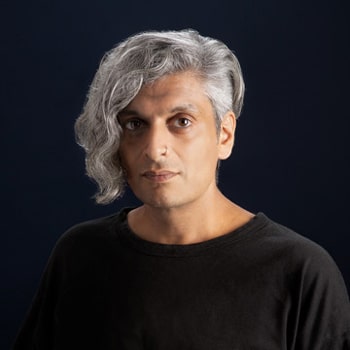
ONO Lab :: Kazim Ali
Yoko Ono’s work in text, visuals, sculpture, sound, and movement serve as ground points generate work. The evirons and air, its sound, water, and rock, will provide the milieux. We’ll read Grapefruit, we’ll listen to Fly. We’ll think through the contributing elements of Ono’ s work—violence and war, the artistic movements of Fluxus and Pop Art and minimalism, and philosophical precepts from Zen Buddhism—and apply these to our own texts and intermedia art. Readings: Grapefruit (Yoko Ono, Simon and Schuster), “To the Wesleyan People” (available in YES Yoko Ono). Recommended: YES Yoko Ono (Ed. Alexandra Munro, Japan Society). Sounds to ground or unground you: “Fly,” “Airmale,” “Cambridge 1969,” “No Bed for Beatle John,” “Mrs. Lennon,” Silver Horse,” “A Story.”
Kazim Ali was born in the United Kingdom and has lived transnationally in the United States, Canada, India, France, and the Middle East. His books encompass multiple genres, including the volumes of poetry Inquisition, Sky Ward, winner of the Ohioana Book Award in Poetry; The Far Mosque, winner of Alice James Books’ New England/New York Award; The Fortieth Day; All One’s Blue; and the cross-genre texts Bright Felon and Wind Instrument. His novels include the recently published The Secret Room: A String Quartet and among his books of essays are the hybrid memoir Silver Road: Essays, Maps & Calligraphies and Fasting for Ramadan: Notes from a Spiritual Practice. He is also an accomplished translator (of Marguerite Duras, Sohrab Sepehri, Ananda Devi, Mahmoud Chokrollahi and others) and an editor of several anthologies and books of criticism. After a career in public policy and organizing, Ali taught at various colleges and universities, including Oberlin College, Davidson College, St. Mary’s College of California, and Naropa University. He is currently a Professor of Literature at the University of California, San Diego. His newest books are a volume of three long poems entitled The Voice of Sheila Chandra and a memoir of his Canadian childhood, Northern Light.
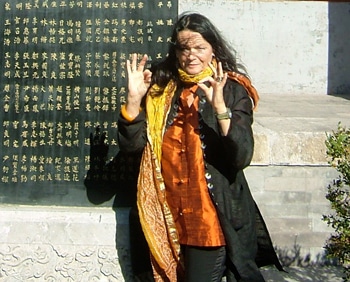
Now Time: Supplicate the AI Angel :: Anne Waldman
Let’s write a screed to the AI Angel! We can’t simply leave the Cyborg Angel, the Angel of History, at the door of Week 1. In the genetic techno-soup of word-work, she is always ready, anywhere. She’s ensouled, and armored and has endured. O my students. “The sky is filled with purple clouds of sickness” as one Buddhist chant has it. “You sleep with your ears open” a Ukrainian grandmother recalls from hell of war. Yet always Diane diPrima’s summer credo: “The only war that matters is the war against the imagination.” A reverence Diane diPrima bestows.
How far can you go: in and through writing; activated by performance; in conjuring structure, and spiritual net for what it is we want to rescue from this nightmare? How to keep track of a wind-blown world––the catastrophe of History propelling the Angel into future-memory? How to uproot the toxic language? (Recent carnage outdoes the existential flight of cerebral war rations & rationality) How do we cope? What happens in precarity?
In our Now Time we might still have choice. Together we’ll investigate the sense perceptions in invigorated difficult text and sound-image; we’ll investigate the notion of “irreparable.” We’ll study, read aloud, record in the Studio; we’ll read Etel Adnan’s Arab Apocalypse, and Diego Gerard’s The Wait, and films of Ed Bowes’s will accompany a path forward. Let’s montage a film together.
Let’s inspire a 500 year planet future.
Anne Waldman’s recent work includes the album SCIAMACHY (with William Parker, Laurie Anderson, Deb Googe & Fast Speaking Music, 2020) The books Sanctuary, 2020; NEW WEATHERS: Poetics from the Naropa Archive (Co-edited with Emma Gomis). The libretto for the film-opera Black Lodge, 2022, which will premiere at Philadelphia Opera in Oct 2022 and the new edition of Songs of the Sons & Daughters of Buddha, translations with Andrew Schelling, 2020. She also has a number of videos with Fast Speaking Music (Mexico City): Natalia Gaia & Ambrose Bye, including the recent “Archive Lentana” with David Rojas; and “I Wanted to Tell You My Meditations on Jupiter,” with music by Thurston Moore, Steven Taylor and Max Davies.
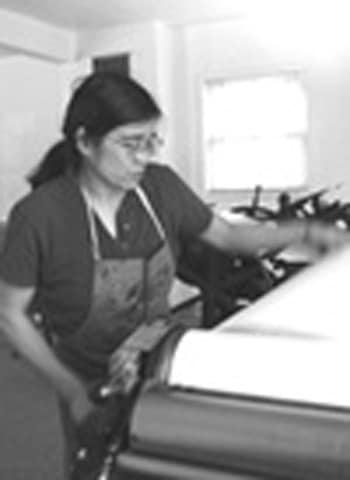
Straight to Type: Improvisatory Letterpress :: Julia Seko
Harry Smith Printshop
Get your hands dirty working with others to re-envision texts, encouraging hybrid forms and serendipity right on the press. Participants will learn traditional typesetting and presswork as well as alternative printing techniques and simple binding skills to create a small edition. We’ll discuss design, typography, materials, publishing collectives, and embodied knowledge as we make our way to the finished work.
Julia Seko is a letterpress printer, book artist, and proprietor of P.S. Press, and adjunct faculty at Naropa University. She co-founded the Book Arts League, a local nonprofit letterpress and book arts organization. Recently she worked with University of Colorado Boulder instructors on The Poetical Table, an artists’ book/installation created by a CU class.
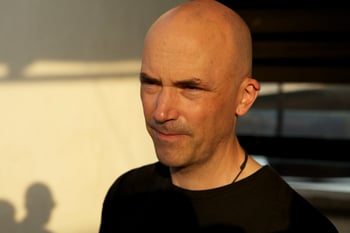
Dharma Arts as Contemplative Poetics :: Erik Ehn
Erik Ehn is an American playwright and director known for proposing the Regional Alternative Theatre movement. A recent graduate of the Jesuit School of Theology, Berkeley California, with a Master of Theological Studies degree and the former dean of theater at CalArts, the California Institute of Arts, he is the former head of playwriting and professor of theatre and performance studies at Brown University. His published works include The Saint Plays, Beginner, and 13 Christs.
Ehn’s Soulographie: Our Genocides, a series of 17 plays, was presented as a two-day marathon at La MaMa in 2012. Together the plays examine the relationship of 20th century America to genocide in the United States, Central America, and East Africa. About half of the plays in the cycle incorporated puppetry. Although most of the plays in the cycle had previously been performed individually, the production presented them together for the first time.
Ehn is co-founder and co-artistic director, alongside Lisa Bielawa, of the Tenderloin Opera Company in San Francisco and also an artistic associate of San Francisco’s Theatre of Yugen. He is a co-founder of the RAT movement, an international network of alternative theaters. He was a recipient of the Alpert Award in the Arts in 2002 and a Whiting Award in 1997. Ehn is the founder of an annual conference called “Arts in the One World,” which brings together performing artists, scholars, and human rights activists to investigate theater on the subject of genocide and reconciliation.
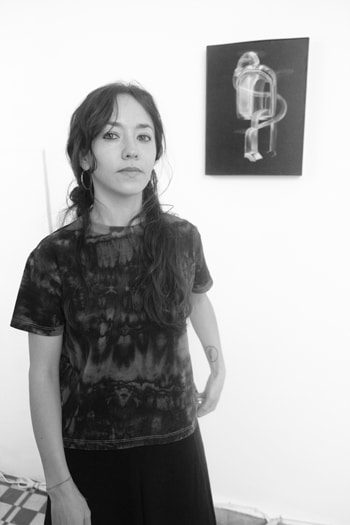
Guest :: Lucía Hinojosa Gaxiola
Lucía Hinojosa Gaxiola is an interdisciplinary artist and writer from Mexico City. Her time-based practice explores the fluidity of language through investigative poetics, resulting in a corpus of visual, sonic, and text-based works. She has exhibited and performed at galleries and venues like Centro de la Imagen (Mexico City), Sala de Arte Público Siqueiros (Mexico), Audiograft Festival of Sound Art (Oxford), Chalton Gallery (London), Grice Bench Gallery (Los Angeles), The Poetry Project (NYC), Anthology Film Archives (NYC), among others. Her critical writings & poems have appeared in The Brooklyn Rail, GasTV, Dolce Stil Criollo, Bombay Gin, philoSOPHIA, Precog Mag, and other publications. She received a BFA in Visual & Critical Studies from SVA, and completed the 2-year program at SOMA in Mexico City. In 2013, she co-founded the experimental editorial platform diSONARE and recently started RIZOMA, a series of performance workshops for imprisoned women. Her first book of poems The Telaraña Circuit is forthcoming from Tender Buttons Press.
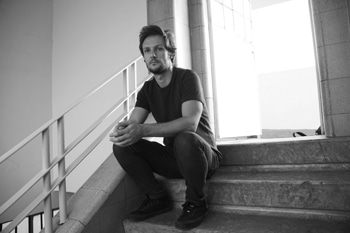
Guest :: Diego Gerard Morrison
Diego Gerard Morrison is a writer, editor, and translator, whose recent work explores themes of magical realism and appropriation set within the context of the Mexican drug war. He is the co-founder and fiction editor of diSONARE, an editorial project based in Mexico City. His fiction, non-fiction, and other writings appear or are forthcoming in The Brooklyn Rail, The River Rail, Terremoto, The Saint Ann’s Review, The Roanoke Review, The Acentos Review, Boiler House Press, Precog Magazine,and Shifter, among others. He lives and works in Mexico City. His first novel Myth of Pterygium has just been published by Autumn Housel. La Espera/The Wait was published by John of the Thing in 2021.
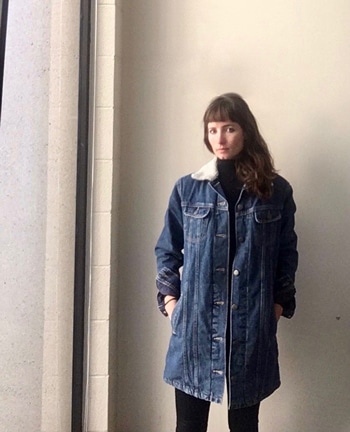
Guest :: Lindsay Turner
Lindsay Turner is the author of Songs & Ballads, and the chapbook Fortnights (forthcoming, Doublecross Press). Her translations from the French include the poetry collections adagio ma non troppo, by Ryoko Sekiguchi (Les Figues Press); and The Next Loves, by Stéphane Bouquet (Nightboat Books); as well as books of philosophy by Frederic Neyrat (Atopias, co-translated with Walt Hunter, Fordham University Press); Souleymane Bachir Diagne (Postcolonial Bergson, Fordham University Press); Anne Dufourmantelle (In Defense of Secrets, Fordham University Press); and Richard Rechtman (Living in Death, Fordham University Press). She is the recipient of a WPR Creative Grant from Harvard’s Woodberry Poetry Room for 2016-17 as well as 2017 and 2019 French Voices Grants. Originally from northeast Tennessee, she lives in Denver, where she is Assistant Professor in the Department of English and Literary Arts at the University of Denver.
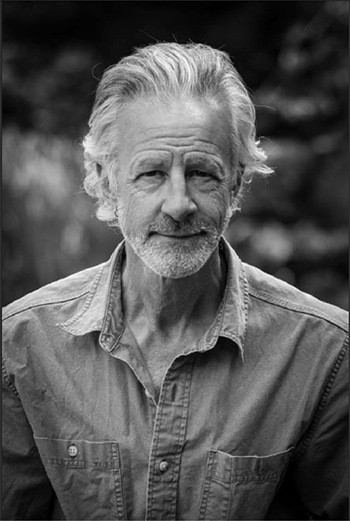
Guest :: Andrew Schelling
Andrew Schelling is a poet, essay writer, land-use activist in the American West, and translator of poetry from the classical Sanskrit. His recent book, Tracks Along the Left Coast: Jaime de Angulo and Pacific Coast Culture, is a folkloric account of wilderness encounters, linguistics, poetry, medicine power, and creation tales. Schelling teaches at Naropa University.
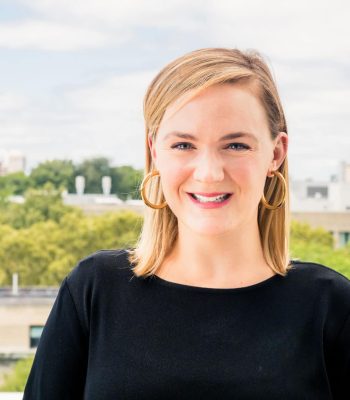
Guest :: Rachael Petersen
Rachael Petersen is a Masters of Divinity Student at Harvard Divinity School where her work explores how experiences of transcendence – from psychedelics to madness – can transfigure our understanding of self, suffering, and possible worlds. With a background in environmental policy, Rachael completed extensive fieldwork in remote sites from the Arctic to the Amazon, and led diverse international teams fighting to preserve the natural world. After burning out, Rachael felt called to “minister” to others overwhelmed by ecological crises. Rachael’s poetry and nonfiction have appeared in The Sun, The Rumpus, The Outline, Psymposia and elsewhere. She loves backpacking, dancing, and running with her cattle dog, Lila.
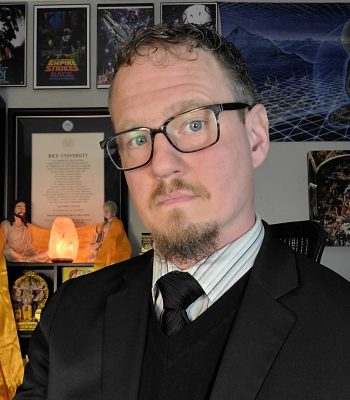
Guest :: Matthew J. Dillon
Matthew J. Dillon is a historian of religions specializing in the reception of ancient Gnostic scriptures, philosophies, and mythemes in American religion and culture. He received his PhD in the Gnosticism, Esotericism, and Mysticism concentration at Rice University’s Department of Religion, and is currently a post-doctoral fellow in the Transcendence and Transformation Initiative at Harvard Divinity School. His first book, The Kingdom is Within You: The Lost Gospels and Post-Christianity in America, will be published with University Press of Virginia. He has also published articles on neo-Gnostic churches, psychoanalysis and Gnosticism, conspiracy theory, and the comic book author Grant Morrison.
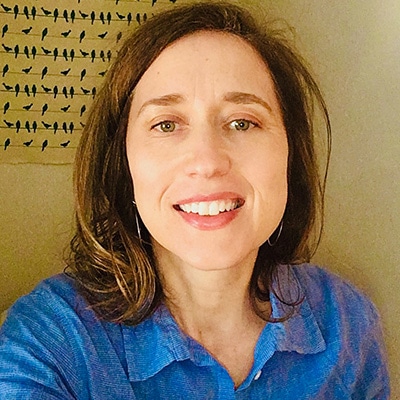
Guest :: Jamie Beachy
Jamie Beachy, MDiv, PhD, is Assistant Faculty and the Director of the Center for Contemplative Chaplaincy at Naropa University. Jamie is a certified spiritual care educator (ACPE) and has served as a chaplain and ethics consultant in diverse contexts including hospice, palliative care, and trauma care settings. In addition to her faculty responsibilities with Naropa’s Master of Divinity program, Jamie is a co-therapist for the MAPS-sponsored phase III MDMA-assisted therapy study in Boulder, and co-Director of the Psychedelic Assisted Therapy Program at Naropa University.
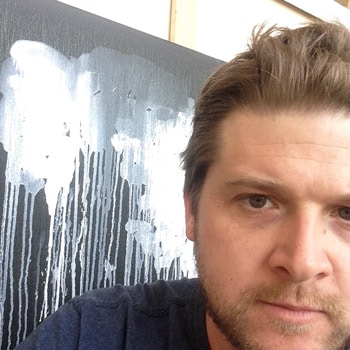
Harry Smith Recording Studio
Summer Writing Program participants (in select workshops each week) may have the opportunity to work in Naropa University’s Recording Studio. Sometimes the projects entail setting their work to music, or recording spoken word poetry, or recording their own poetic songs; oftentimes the recording studio projects are group collaborations, collective sound installations, and other experiments withthe phonotext. Over the year Fast Speaking Music has produced several audio anthologies of student and guest faculty’s recorded work; the Harry’s House cd compilations; here is the link to Volume III: https://spoti.fi/3v19mQP
Ambrose Bye is a musician, engineer, and producer living in Mexico City, and is the co-founder of Fast Speaking Music with Anne Waldman. He has produced over 20 albums and frequently collaborates with poets. Recent productions include “Among the Poetry Stricken” (Clark Coolidge and Thurston Moore) and “Artificial Happiness Button” (Heroes are Gang Leaders). He has worked and performed at Masnaa and the Ecole de la Literature in Casablanca, Le Maison de Poesie in Paris, the fieEstival Maelstrom in Brussels, the Henry Miller Library in Big Sur, Pathway to Paris at Montreal POP 2015, and Casa Del Lago in Mexico City. He has also been involved in the recording studio and workshops at the Summer Writing Program at Naropa University since 2009.
Fast Speaking Music



